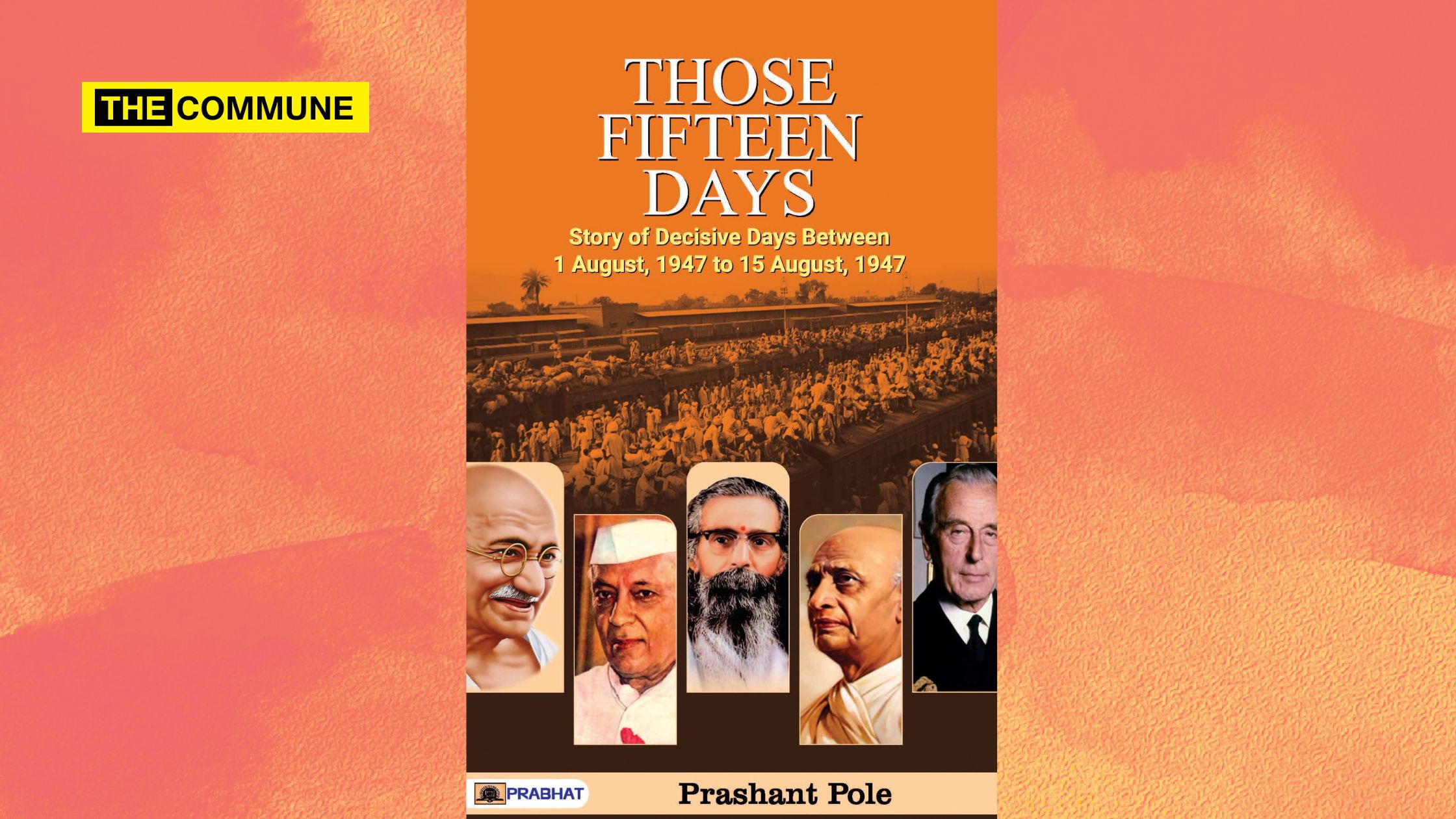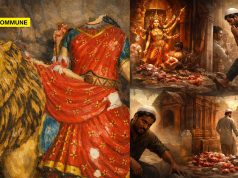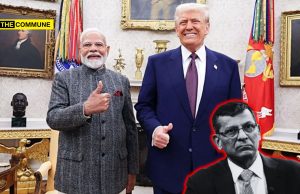
Prashant Pole’s book “Those 15 Days” takes readers on an eye-opening journey through the final days before India’s independence. The book vividly captures the chaos, political manoeuvres, and everyday struggles leading up to August 15, 1947. It also highlights the critical role of the RSS during this turbulent time, from protecting leaders to aiding families caught in the violence of partition. With rare photos and gripping details, Pole uncovers shocking truths about leaders and the ground-level horrors of partition, offering a fresh perspective on this pivotal moment in history. It’s a must-read for anyone who wants to learn about the real stories behind India’s fight for freedom.
Why Is It An Important Read?
One of the most controversial, yet revered figures from world history, Sir Winston Churchill, famously said, “Those who fail to learn from history are doomed to repeat it”. History serves as a living witness to the realities and brutalities of the past. As a country proceeds down the path of technological evolution and overall upliftment of the wide populace, it becomes imperative that we study our history and derive lessons from it. For if one fails to understand the psyche and psychological factors that impact a society, as Churchill said, we will repeat the same old story. Indian Independence is well documented by many luminaries, nationally and internationally.
However, one does grapple with a question: What exactly was happening on the ground in the run-up to the main day i.e. 15 August 1947? What were the country’s leaders, political or otherwise, involved in? What were the issues being faced by the common people?
Prashant Pole effectively answers such questions in “Those 15 Days.” It was originally written in Marathi as a series of articles (later published as a book titled Veh Pandrah Divas) and translated to English and nine other languages.
This book details the 15 days from the start of August, culminating with the declaration of Indian Independence on the 15th. It vividly describes the political machinations and shocking ground realities across the complete spectrum of undivided India.
Prashant Pole Highlights the Role of RSS During Partition
Prashant Pole has made a wonderful effort to provide a balanced perspective with a critical view of the incidents of those 15 days. This fulfils a need to rewrite history with strict objectivity, a requirement that is perhaps the need of the hour. Pole is a journalist, who is also associated with RSS. The book outlines the RSS’s efforts during the partition, and their response to those harsh ground realities.
His earlier book “Treasure Trove of Indian Knowledge” was a fantastic read with very deep insights into the rich cultural and scientific history of Bharatha. Considering such a rich background, this book had set some very high expectations, and it shouldn’t be a surprise that it achieves much more than what was set.
The book opens with a beautiful and illuminating foreword by Dr. Vinay Sahasrabuddhe. His articulation of the subject and the author’s efforts in sketching out a picture in front of the reader is exemplary. Apart from the deeply researched and widely referenced materials, the book also benefits from rare photographs and news articles. These augment the reading experience by enabling the user to connect the dots with the incidents being described – definitely, one of the book’s highlights.
What Happened During Those 15 Days?
As the title suggests, the book outlines the events and incidents occurring from 1 to 15 August 1947. It details the critical events across the undivided country comprising Pakistan, Bangladesh, and India. During this informative and sometimes disturbing journey, the author provides some fascinating information that provides a fresh understanding of modern geopolitical realities.
The handing over of Gilgit province to the Maharaja of Kashmir, Hari Singh, on 1 August 1947 is one such incident detailed in the book. The demographical make-up of these various military and paramilitary forces and the subsequent challenges multiple entities face during the coming days make for a horrifying read.
Pole’s keen eye for detail is reflected in a refined manner at various junctures of the book. In a specific scenario where the situation is turning grim considering the impact of Sir Cyril Radcliffe’s announcement on the line of partition, the author takes a moment to highlight that Mandi, a village that was caught in the crosshairs of the conflict, is actually named after Sage Manu.
The read becomes emotionally challenging and draining as we get closer to 15 August. The petrifying tales of women being carried out as trophies, multiple rapes, and murders do evoke deep pain within oneself. During these challenging times, the conduct of some of the leaders of international repute is quite startling.
Congress During The Partition
One of the astonishing incidents was Mahatma Gandhi’s refusal to visit the Wah refugee camp. One can only speculate on the future if he had visited the same.
Some other incidents make for interesting and, quite frankly, astonishing reads. Lahore being the base of Motilal Banarasidas (famous publisher), Jawaharlal Nehru’s acquiescence to Lord Mountbatten’s request to fly the Union Jack on specific days even after the independence are some of the thought-provoking incidents. However, a more surprising one is related to Jawaharlal Nehru’s rally in Hyderabad (within Pakistan). It is quite revealing to note that RSS provided security for the national leader at the behest of INC. Perhaps it is an incident that has washed away throughout history and time.
Adversity brings out the character of humans and, more specifically, the leaders. An ordinary man would look up to the leaders during turmoil and generational adversity. However, the book reveals some very shocking incidents. It will make us ponder: Do we really know the reality of the past?
An example would be the suggestion to “… face death along with dying Lahore rather than flee and save one’s lives”. In another case, Sucheta Kripalani, wife of Congress president J. B. Kripalani, guilt trips the women by stating that “… they wear low neck blouses and transparent sarees that attracted the goons. Hence, they should consider the age-old Rajput practice of Jauhar”.
Reading such horrifying realities at various junctures in the book is mind-numbing. One can only wonder, what more is left to be discovered and brought in front of the world.
Secrets Unveiled By ‘Those 15 days’
The author reveals appeasement in the form of fear of retaliation to Direct Action Day. While Calcutta transitions from a raging fire to an uneasy calm, the underlying simmering anger is palpable with the slogans against Mahatma Gandhi. This is not a one-off incident but a part of a series of such episodes across history. The hatred towards Subash Chandra Bose’s INA is obvious as the government refused to release INA political prisoners on the eve of Independence.
The book highlights the selfless and courageous service rendered by Swayamsevaks across the borders during these tumultuous times. Whether it is to provide security to Nehru or Guruji during his visit to Sindh or to ensure the safety of every Hindu and Sikh family across the border, the Sangh’s dedication towards the nation and the common populace is quite well highlighted with relevant details and events. The book ends with the August 14th and 15th events in the two new nations carved out of undivided India. T
The picture of the Times of India article is stimulating.
The book also brings out some of the darkest times of our past. The mass murders of people arriving on trains, the rapes and taking away women as ‘war trophies’, the murders of Nihang Sikhs guarding a Gurudwara make for a blood-curling, deeply drenching read. When the reader envisions these incidents, the horrifying nature of the same is definite to shake the core fundamentals of a being.
To summarise the book review, Prashant Pole’s ‘Those 15 Days’ is a disconcerting read about one of the darkest episodes of our history. It is highly recommended.
Gee Vee is an engineer and avid fan of itihasas, puranas and books.
Subscribe to our Telegram, WhatsApp, and Instagram channels and get the best stories of the day delivered instantly.




